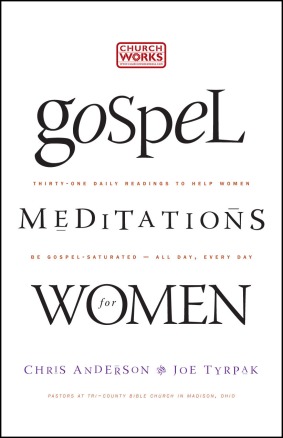 Today Protestants around the world give thanks to God for the Reformation, the 16th-century movement which reclaimed the glorious doctrine of salvation by grace through faith in Christ alone from the obscuring veils of Roman traditions. On October 31, 1517, Martin Luther symbolized the heart of the Reformation by posting his 95 Theses in protest at the sale of indulgences by the Church. We summarize the Reformers’ convictions with 5 Solas: Sola Scriptura, Sola Fide, Sola Gratia, Solus Christus, and Soli Deo Gloria. All of them are precious, but I’d argue that the greatest of them is the first: Sola Scriptura. I elevate it not because it is inherently more significant than the others, but because it is the source of the others (and thus is referred to as “the formal principle of the Reformation”). If we don’t acknowledge the authority and sufficiency of the Word of God, we have no basis to determine the doctrine of salvation—or anything else.
Today Protestants around the world give thanks to God for the Reformation, the 16th-century movement which reclaimed the glorious doctrine of salvation by grace through faith in Christ alone from the obscuring veils of Roman traditions. On October 31, 1517, Martin Luther symbolized the heart of the Reformation by posting his 95 Theses in protest at the sale of indulgences by the Church. We summarize the Reformers’ convictions with 5 Solas: Sola Scriptura, Sola Fide, Sola Gratia, Solus Christus, and Soli Deo Gloria. All of them are precious, but I’d argue that the greatest of them is the first: Sola Scriptura. I elevate it not because it is inherently more significant than the others, but because it is the source of the others (and thus is referred to as “the formal principle of the Reformation”). If we don’t acknowledge the authority and sufficiency of the Word of God, we have no basis to determine the doctrine of salvation—or anything else.
I was struck again by this from an unlikely source a few years ago. Victor Hugo wrote the following historical commentary during one of the (rather frustrating) plot lapses in The Hunchback of Notre Dame:
“The sixteenth century shattered religious unity. Before printing, the Reformation would just have been a schism; printing made it a revolution. Take away the printing press and heresy is enervated [weakened, destroyed]. Be it fate or providence, Gutenberg was Luther’s precursor.”
What Hugo is highlighting is the importance of the printed word—indeed, of the printed Word! In God’s providence, the Reformation took place in a time when thought and religion had been freed by Gutenberg’s press. This was no coincidence. An unbending commitment to the Word started, informed, and spread the Protestant Reformation. Luther’s main contribution to the Reformation was his commitment to Scripture, stated often, but never more beautifully or boldly than in his defense at the Diet of Worms:
“Unless I am convinced by the testimony of the Scriptures or by clear reason (for I do not trust either in the pope or in councils alone, since it is well known that they have often erred and contradicted themselves), I am bound by the Scriptures I have quoted and my conscience is captive to the Word of God. I cannot and will not recant anything, since it is neither safe nor right to go against conscience. Here I stand. I can do no other. God help me. Amen.”
“I am bound by the Scriptures.” Yes. “My conscience is captive to the Word of God.” Amen. That’s the Reformation in a nutshell. Indeed, it’s Christianity in a nutshell. Luther and the Reformers didn’t get everything right. They couldn’t have. But their role was like that of a good teacher—not to teach students every fact they will ever need to know, but to teach them how to learn. The Reformers reminded the church how to learn—how to think—by pointing us to the Scriptures and away from human authorities. That was their genius, built upon the genius of pre-Reformers like Wycliffe and Huss. Sola Scriptura!
There is no question that the great doctrines of the Reformation are under attack again today. Much of evangelicalism is “slouching towards Rome.” Our response, as ever, must be to tenaciously hold to the authority of the Scriptures. That’s not as simple as it seems, for there is ever the temptation to amend to the Word our own ideas. When the ideas are old, we call them “tradition.” When the ideas are new, we call them “contextualization.” Regardless of what extra-biblical ideas are called, we must not yield to them. We have a more sure word. We have an inspired Word. We have a sufficient Word. May we truly embrace it as our “only rule of faith and practice” as our creeds require. We can do no other. God help us.
Filed under: History Bits, Ministry Musings, Roman Catholicism, The Reformation | Tagged: Martin Luther, Reformation, Reformation Day, Sola Scriptura, Sufficiency of Scripture, Victor Hugo | 6 Comments »
 Well, this is it. I’m “breaking the bank” at MyTwoCents. I started this blog over 7 years ago at the urging of my friend, Greg Linscott. (Thanks for the push, Greg. Sincerely.) It’s been fun, and occasionally, profitable. Sure, I’ve said some stupid things here. (If you’re wondering, blogging gives a Pulpit Committee plenty to consider during the vetting process.) But I’ve also grown as a writer and as a Christian. And along the way, I’ve made many friends here. Thanks for reading and interacting!
Well, this is it. I’m “breaking the bank” at MyTwoCents. I started this blog over 7 years ago at the urging of my friend, Greg Linscott. (Thanks for the push, Greg. Sincerely.) It’s been fun, and occasionally, profitable. Sure, I’ve said some stupid things here. (If you’re wondering, blogging gives a Pulpit Committee plenty to consider during the vetting process.) But I’ve also grown as a writer and as a Christian. And along the way, I’ve made many friends here. Thanks for reading and interacting!










 Today Protestants around the world give thanks to God for the Reformation, the 16th-century movement which reclaimed the glorious doctrine of salvation by grace through faith in Christ alone from the obscuring veils of Roman traditions. On October 31, 1517, Martin Luther symbolized the heart of the Reformation by posting his 95 Theses in protest at the sale of indulgences by the Church. We summarize the Reformers’ convictions with 5 Solas: Sola Scriptura, Sola Fide, Sola Gratia, Solus Christus, and Soli Deo Gloria. All of them are precious, but I’d argue that the greatest of them is the first: Sola Scriptura. I elevate it not because it is inherently more significant than the others, but because it is the source of the others (and thus is referred to as “the formal principle of the Reformation”). If we don’t acknowledge the authority and sufficiency of the Word of God, we have no basis to determine the doctrine of salvation—or anything else.
Today Protestants around the world give thanks to God for the Reformation, the 16th-century movement which reclaimed the glorious doctrine of salvation by grace through faith in Christ alone from the obscuring veils of Roman traditions. On October 31, 1517, Martin Luther symbolized the heart of the Reformation by posting his 95 Theses in protest at the sale of indulgences by the Church. We summarize the Reformers’ convictions with 5 Solas: Sola Scriptura, Sola Fide, Sola Gratia, Solus Christus, and Soli Deo Gloria. All of them are precious, but I’d argue that the greatest of them is the first: Sola Scriptura. I elevate it not because it is inherently more significant than the others, but because it is the source of the others (and thus is referred to as “the formal principle of the Reformation”). If we don’t acknowledge the authority and sufficiency of the Word of God, we have no basis to determine the doctrine of salvation—or anything else. Joe Tyrpak
Joe Tyrpak One of passages which most shapes my understanding of the ministry is
One of passages which most shapes my understanding of the ministry is 


